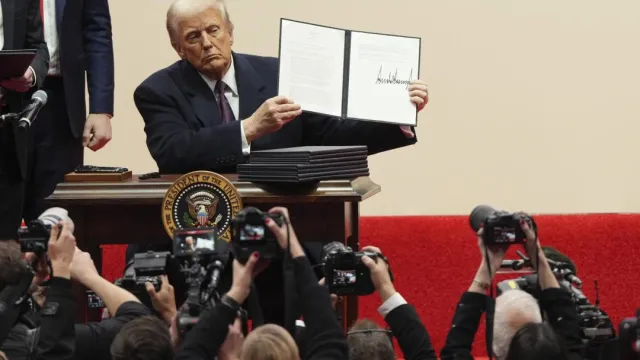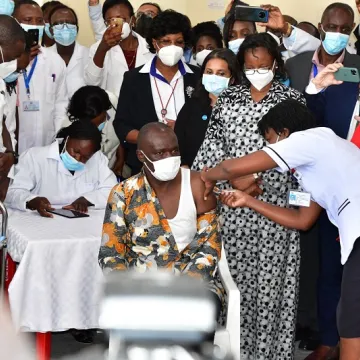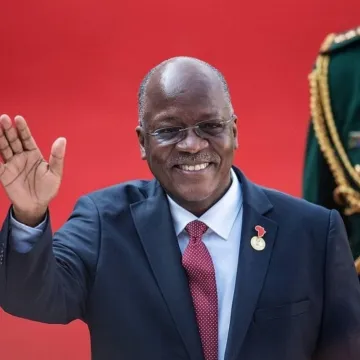WHO left reeling as US cuts ties with global health agency

US President Donald Trump has signed an executive order that will see the US withdraw from the World Health Organization (WHO), a decision that would cut off critical funding to one of the international disease response groups.
The World Health Organization (WHO) has expressed regret following US President Donald Trump's executive order that will see Washington withdraw from the United Nation's health agency. Trump's decision on his first day in office will see billions of dollars in critical funding to one of the international disease response groups cease almost immediately.
“The United States noticed its withdrawal from the World Health Organization (WHO) in 2020 due to the organization’s mishandling of the COVID-19 pandemic that arose out of Wuhan, China, and other global health crises, its failure to adopt urgently needed reforms, and its inability to demonstrate independence from the inappropriate political influence of WHO member states,” reads part of the executive order.
In a statement, hours after the developments in Washington, WHO said its cooperation with US over the decades has "saved countless lives and protected Americans and all people from health threats. Together, we ended smallpox, and together we have brought polio to the brink of eradication. American institutions have contributed to and benefited from membership in WHO."
The Geneva-based organization added, "We hope the US will reconsider and we look forward to engaging in constructive dialogue to maintain the partnership between the USA and WHO, for the benefit of the health and well-being of millions of people around the globe."
However, President Trump argued that WHO continues to demand unfairly onerous payments from the US, far out of proportion with other countries’ assessed payments. For example, it pointed out that China, with a population of 1.4 billion, has 300 percent of the population of the US, yet contributes nearly 90 percent less to the WHO.
This move means the US will leave WHO in 12 months' time and stop all financial contributions to its work. US is by far the WHO's biggest financial backer, contributing around 18 percent of its overall funding.
WHO's most recent two-year budget, for 2024-2025, was $6.8 billion out of which the US contributions amounted to $662 million.
The next-largest donors to the WHO are the Bill & Melinda Gates Foundation, whoset funding goes to polio eradication, and the global vaccine group Gavi, followed by the European Commission and the World Bank. Another large national donor is Germany, which contributes around 3 percent of WHO's funding.
Based in Geneva, the WHO plays a crucial role in addressing global health threats, including infectious diseases, humanitarian crises, and chronic conditions like cancer and heart disease. A potential US exit could significantly impact its funding.
The order also says the future transfer of any US Government funds, support or resources to the WHO should be paused, and the director of the White House Office of Pandemic Preparedness and Response Policy “shall review, rescind and replace the 2024 US Global Health Security Strategy as soon as practicable.”
Additionally, Trump Donald Trump has ordered a 90-day pause in foreign development assistance pending assessments of efficiencies and consistency with his foreign policy.
"All department and agency heads responsible for United States foreign development assistance programs shall immediately pause new obligations and disbursements of development assistance funds," read the executive order signed by Trump.
The order said that the foreign aid industry and bureaucracy are not aligned with American interests and in many cases antithetical to American values and serve to destabilize world peace by promoting ideas in foreign countries that are directly inverse to harmonious and stable relations internal to and among countries.
The Executive Order, also issued hours after his swearing-in on Monday, January 20, will impact countries that depend on aid from the US. Kenya receives substantial foreign aid from the US, encompassing various sectors such as health, security, and economic development.





